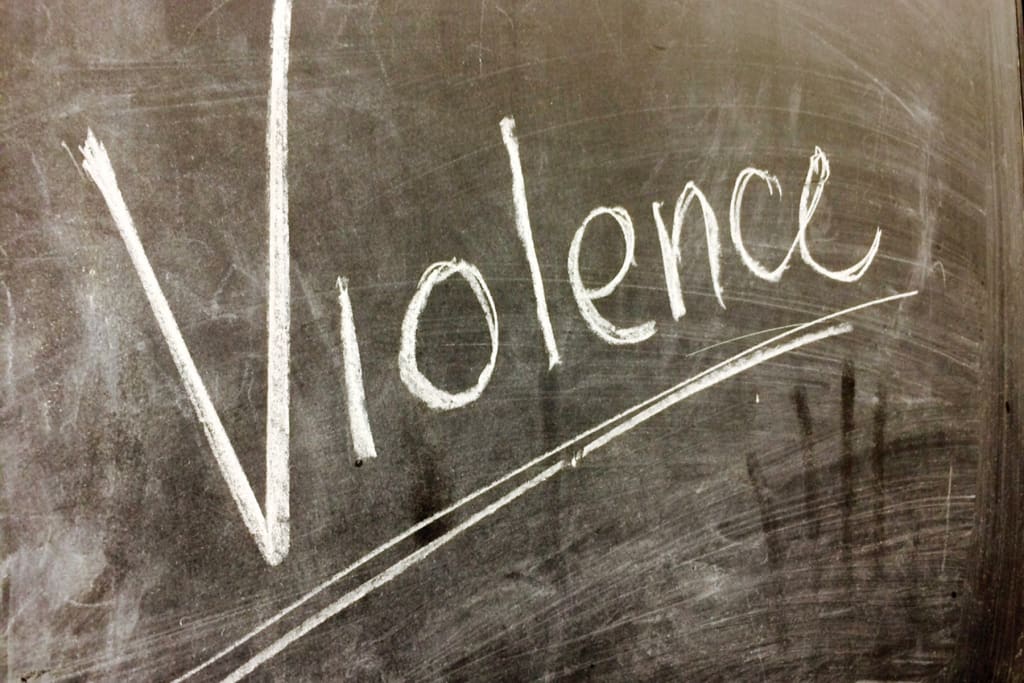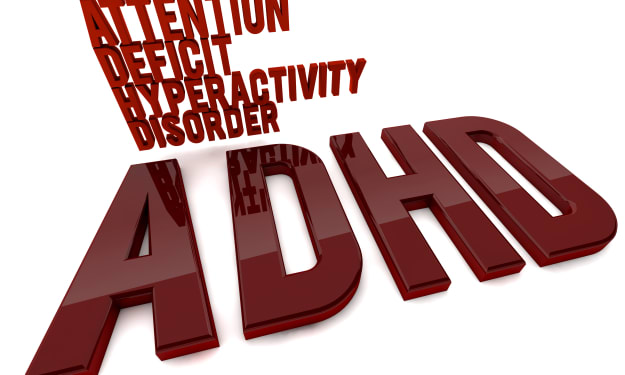Treat People Like They're People.
Is It Ethical to Use Violence Against an Oppressor, and Other Burning Questions

When considering my own ethicality, the first thing I consider is the way I treat others, and there are many questions that this class has led me to ask myself. I feel that four of those questions are extremely important, those questions being whether or not it is ethical to treat others as tools, if it is ethical to use violence, if it is ethical to use violence against an oppressor, and whether it is more important to evaluate the ends or the means when making an ethical decision. Each person probably has a unique answer to these questions, and everyone has to live according to what they believe is ethical. However, I think that most people would agree that it is not ethical to objectify others and treat them as objects rather than as human beings, and this idea strongly influences the way I answer the questions above.
The first question I ask myself is whether or not it is ethical to treat other people as tools. In my opinion, using someone as a tool involves objectifying them with no regard to the person’s thoughts or feelings. For example, enslaving a person is one way a person can be used as a tool. When a person is enslaved, they are forced to perform tasks and do work without pay and regardless of whether or not they have given consent. This is extremely unethical because of the way another human being is viewed and treated as an object without consideration for their wellbeing. Additionally, Angela Davis claims that “Fanon’s analysis of the role of colonial police is an appropriate description of the function of the police in America’s ghettos.” (Davis 39). Fanon says that violence and oppression is the natural state of colonial rule, which aligns with the way the colonists treated the Natives as tools by enslaving many of them.. Later on, the young America continued the slavery system by bringing African people to America and forcing them to do manual labor without their consent. For years, the colonists and the “colonial police” worked extremely hard to protect the status quo of slavery despite the fact that it involved enslaving other human beings. This is one example of how colonization is tied in closely with slavery, which means that, despite the good things that came out of colonizing countries, it was a very unethical practice. And that is because it is unethical to treat other people as tools.
At least in America, we as citizens have the right to life, liberty, the pursuit of happiness, which stems from the idea that, as living people, we have the right to live our life on our own terms, as long as our actions do not hurt others. In an ideal world, no one would feel compelled to hurt another person, but, unfortunately, this isn’t a perfect world. I and most other people believe that violence, for the most part, is unethical because it involves hurting another human being, which is not a good thing to do, but that doesn’t mean that violence doesn’t happen. There are plenty of nonviolent ways to work through conflict, but sometimes violence is ethical and necessary because of the unethical violence of others. For example, if you are being attacked, it would be ridiculous to not attempt to defend yourself, which involves the use of some violence. The reason violence is ethical in this situation and in similar ones is because you were first treated unethically, and the only way to escape the unethical situation is to use ethical violence. Another ethical reason for the use of violence is when an oppressed person is trying to escape the tyranny of their oppressor. Frantz Fanon says that “the violence which has ruled over the ordering of the colonial world, which has ceaselessly drummed the rhythm for the destruction of native social forms and broken up without reserve the systems of reference of the economy, the customs of dress and external life, that same violence will be claimed and taken over by the native at the moment when, deciding to embody his own person, he surges into the forbidden quarters” (Fanon 143-144). In other words, when you abuse and violently mistreat a group of people, it is only a matter of time before they decide to fight back. People do not like to be oppressed, and it is natural to fight back against the oppressor. In a system like colonialism that was built on violence and force, it only makes sense that the system be dismantled in the same way, or else the attempt at deconstruction will likely not be successful.
Although it is very similar to the previous question, we must also question the ethicality of an oppressed person using violence against their oppressor. We have already established that is it unethical to treat others as tools, which means that slavery and violent oppression is unethical as well. Therefore, I believe that it is ethical for people in captivity to use violence against their captors, and, usually, the only way to escape such an oppressive situation is by using violence in order to overthrow the violent oppressor. Fanon addresses the oppressed person’s dilemma by saying that “we see, therefore, that the colonized people, caught in a web of three dimensional violence, a meeting point of multiple, diverse, repeated, cumulative violences are soon logically confronted by the problem of ending the colonial regime by any means necessary” (Fanon 654). This quote illustrates the scenario colonized people are trapped in as it shows how they face nothing but violence in various forms for long periods of time. They are not offered a way out or another way of life, so what are they to do besides revolt against their oppressors? If an oppressor treats a group of people with violence, unfortunately, a peaceful revolt probably isn’t an option, so the oppressed people are practically forced to respond with violence if they want to succeed.
The final question we must ponder is whether or not we should focus on the ends or means when making an ethical decision. In my opinion, it is more important to evaluate the means. Your goal may be ethical and have good intentions, but if you are hurting people as you try to reach this goal, it is no longer ethical. Deinstitutionalization is a good example of this, as the government had good intentions when they discharged “roughly 487,000 mentally ill patients … from state hospitals” (Amadeo). One of the main reasons for this change was because people began to accept “that the mentally ill needed to be treated instead of locked away” (Amadeo). This change of heart was essential and is a great example of the movement’s good intentions, but, sadly, there were some negative side effects. One of these effects is that people with severe mental illnesses now have a much harder time getting the help they need, and, unfortunately, “3.5 million of the severely mentally ill do not receive any psychiatric treatment at all” (Amadeo). This can be for a variety of reasons, but more often than not, a lot of these people are struggling so much that they are unable to get the help they need on their own, and no one can make them get help either. Part of deinstitutionalization was that people could not be put in mental hospitals without their consent, which is great for the most part, but means that concerned family members and friends can’t do much to help someone who would benefit from a mental hospital but refuses to be admitted to one. A lot of the patients who were discharged from institutions were severely mentally ill and “were not good candidates for community centers due to the nature of their illnesses” (Amadeo). These are the kinds of people who would benefit from long term in-patient care, but now many of them aren’t getting that care for the reasons listed above as well as others. Another unintended side effect is increased mass shootings. Most shootings aren’t the result of someone who just snapped one day, but are carefully planned by people who “suffered for years from untreated or poorly treated mental illness” (Amadeo). Many shootings are carried out by a psychotic person, a sociopath/psychopath, or a young man who is depressed and violent, all of whom would benefit from treatment at a mental hospital. However, most people in these categories would likely not go to a hospital unless someone brought them against their will. This is just one example of why it is extremely important to consider the means you would be taking to reach a certain goal.
Of all the questions we must ask ourselves in regards to our ethicality, there are four questions that influence each other and force us to evaluate the way we treat others. These questions include the ethicality of treating others as tools, the ethicality of violence and violence against an oppressor, and if it is more important to focus on the ends or the means when it comes to an ethical situation. The main thing we can take away from these questions is that we should strive to treat all people with respect and kindness because, at the end of the day, we are all human beings and each one of us deserves to be treated as such.
Works Cited
Davis, Angela. Political Prisoners, Prisons, and Black Liberation.
Fanon, Frantz. “Why We Use Violence.” Political Writings, pp. 653–659.
https://www.facebook.com/thebalancecom, and Kimberly Amadeo. “Learn About Deinstitutionalization, the Causes and the Effects.” The Balance, 2013, www.thebalance.com/deinstitutionalization-3306067. Accessed 3 Dec. 2020.
About the Creator
Celia Pyburn
Welcome, friends! I write everything from fiction to opinion pieces to political essays, so there's almost certainly something here for you. Feel free to stay as long as you like!






Comments
There are no comments for this story
Be the first to respond and start the conversation.